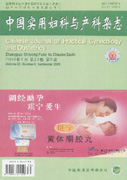Abstract:Autoimmune disease is a situation of immune disorder, and realizing the interaction between pregnancy and autoimmune disease and taking effective measures during perinatal stage is essential to ensure a successful delivery. In brief, we should set up multi-disciplinary teams, do some special tests and make individualized drug treatment, make plans before pregnancy, attach importance to prenatal examinations, enhance fatal and placental monitoring, terminate pregnancy in a proper time and make managements during puerperium stage.

